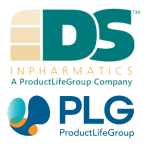An Investigational Device Exemption (IDE) is an application that must be submitted to receive the Food and Drug Administration’s (FDA) approval to use a novel medical device in a clinical study. This enables the collection of safety and efficacy data to take the necessary steps toward full market approval.

Image Credit: DSI, a PLG Company
IDE applications support several different studies:
- To establish feasibility before finalizing a device's design
- To capture data relating to safety and efficacy on near-final or final device design to plan for a critical study
- To facilitate the study itself, which is designed to determine a device's safety and effectiveness through evidence
A key part of an IDE is the proposed clinical study protocol. The FDA states that clinical studies are typically produced to support Premarket Applications (PMA) that allow market Class III and some Class II devices to gain full market approval. Investigational use is covered by the clinical evaluation of novel Class III devices, modifications or new proposed uses for some legally marketed devices (FDA, 2019).
Continue reading to learn what an IDE application and study is and why it may be crucial to market your medical device legally.
Why Require an Investigational Device Exemption Application?
An IDE application must acquire FDA approval for clinical study protocol before conducting a clinical study. Clinical studies are required for Class III and some Class II medical devices to establish the safety and effectiveness of a medical device relative to large-scale human use.
Investigational devices fall under the umbrella of IDE regulations based on the level of device risk. Said risk levels are divided into two categories: significant risk (SR) and non-significant risk (NSR). The FDA's regulatory requirements are outlined in the following examples:
Significant Risk (SR)
Any device regarded as a significant risk (SR) must meet the IDE regulations under 21 CFR 812, as well as having an IDE application approved by the FDA and Investigational Review Board (IRB) approvals before conducting any study.
Non-Significant Risk (NSR)
Devices regarded as non-significant risk (NSR) are only required to meet the amended IDE regulations under 21 CFR 812.2(b), and only IRB approval is required before conducting any study.
Some devices may be exempt from IDE regulations under 21 CFR 812.2(c). Generally, a device is considered exempt if it is non-invasive and not used to perform invasive sampling procedures. The ultimate decision on which classification a medical device receives falls on the FDA. The correct applications must be submitted.
Why Investigational Device Exemption Studies Are Important
IDE studies are conducted to ensure devices are safe and will not harm patients as contact is made. Regulations set by the FDA and other regulatory bodies have been established to maintain the safety of both the device and the people who come into contact with it.
Outputs of an IDE study include:
- Preliminary safety and efficacy data on near-final or final device design
- Definitive evidence of safety and effectiveness for intended use
- Evaluating device design, functionality and initial clinical safety
- Offers first in human data when no other non-clinical testing can be conducted
- Supplies relevant information and data for full marketing approval
DS InPharmatics and Investigational Device Exemption Applications and Studies
DSI’s team of medical device consultants possess years of valuable experience supporting companies that need assistance with medical device development and acquisition of marketing approvals. This includes support with various elements, including device design, manufacturing, verification and validation, and a comprehensive knowledge of global regulations. These include, but are not restricted to:
- ISO 13485 and the Medical Device Regulation 2017/745
- FDA Title 21
- CFR Part 820, SOR 98/282 (Canada)
- Therapeutic Goods Regulations (Australia)
- RDC 185/2001 (Brazil)
- PMDA (Japan)
- NMPA registrations (China)
DSI assists its clients seeking regulatory approvals. This is achieved through developing detailed strategies with a knowledge base acquired over years of hands-on experience and an understanding of worldwide regulations.
DSI services include the following options:
- 510(K) – Medical Device Application
- Investigational Device Exemption (IDE) Applications
- Medical Device Development Strategy
- Premarket Approval Application (PMA)
- Worldwide Regulatory Submissions/Registrations
For further information on investigational device exemption (IDE) studies or more about additional services, please contact DSI’s team of expert consultants today.
About DS InPharmatics 
DS InPharmatics (DSI) provides regulatory, technical, and project management consulting services to healthcare product companies that manufacture and/or market pharmaceuticals, biopharmaceuticals, and cellular and gene therapy products.
Since 2007 we have provided our clients with innovative strategies and exceptional quality work products intended to enhance product development, approval, and marketing presence. Whether advocating CMC strategy, directing CMC operations or developing CMC submission content that represent the best interests of emerging biotech, we focus on the critical CMC issues and build programs that enhance development.
In April 2021 we were thrilled to announce that DSI has just become part of ProductLife Group.
French-headquartered ProductLife Group (PLG) is well-known in the Life Sciences market. It has a track record of successfully managing global outsourcing programs and insourcing services for its international client base. The company is on a mission to help transform human health outcomes by optimizing regulatory affairs, safety & vigilance, and quality compliance for life sciences organizations worldwide.
The fit between our two organizations could not be more perfect. We will complement PLG's growing biotech services portfolio. US biotech sponsors recognize DSI as a leader in consulting for go-to-market strategies and RA pre-market consulting. At the same time, PLG has a strong reputation for managing end-to-end outsourcing of regulatory affairs and pharmacovigilance activities worldwide.
Our merger with PLG will harness our combined strengths, offering our clients on both sides of the Atlantic support with their developed drugs approvals and post-approvals compliance, plus advisory services on the best market strategies to deliver a rapid ROI on their development. Together we will offer our clients increased pharmacovigilance capabilities - including a QPPV; pharmacovigilance consulting; and a fully validated safety database - as well as complementary toxicology-related services; RIM/electronic document management services; and support for medical device regulatory requirements.
We see enormous potential in this new chapter for DSI and you, our clients. As a PLG company, we have the opportunity to become part of a global force in life sciences regulatory and compliance solutions and services, and we're incredibly excited to add our momentum to that effort.
Sponsored Content Policy: News-Medical.net publishes articles and related content that may be derived from sources where we have existing commercial relationships, provided such content adds value to the core editorial ethos of News-Medical.Net which is to educate and inform site visitors interested in medical research, science, medical devices and treatments.